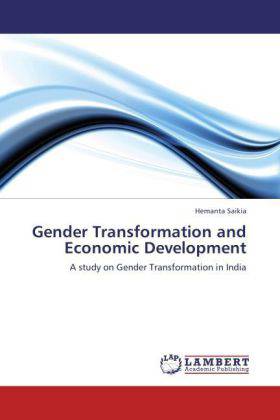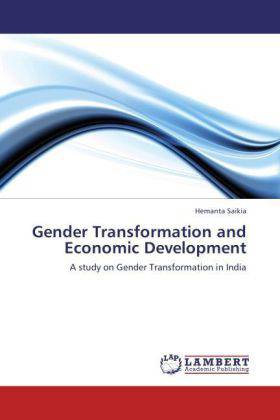
- Afhalen na 1 uur in een winkel met voorraad
- Gratis thuislevering in België vanaf € 30
- Ruim aanbod met 7 miljoen producten
- Afhalen na 1 uur in een winkel met voorraad
- Gratis thuislevering in België vanaf € 30
- Ruim aanbod met 7 miljoen producten
Zoeken
Gender Transformation and Economic Development
A study on Gender Transformation in India
Hemanta Saikia
Paperback | Engels
€ 75,45
+ 150 punten
Omschrijving
In recent decades, statuses of women s edification and wellbeing have improved significantly. But in many parts of the world, women are still failing in several fields. They continue to lack voice and administrative ability in the household and in society; and their economic prospects remains very embarrassed. This inequality is manifestly unfair. At the same time, under-investing in girls and women puts a brake on poverty reduction and limits economic and social development. However, in last few decades, feminism revolution called attention to the relationship between gender transformation and economic development. One concern of these efforts is to gain a better perceptive of interlink between economic improvement on gender inequalities. Despite the popular nature of this debate, there have been few studies of the impact of economic development and changes in the condition of women over time. This book provides a concise, accessible introduction to gender and development issues in India.
Specificaties
Betrokkenen
- Auteur(s):
- Uitgeverij:
Inhoud
- Aantal bladzijden:
- 156
- Taal:
- Engels
Eigenschappen
- Productcode (EAN):
- 9783847345107
- Verschijningsdatum:
- 18/01/2012
- Uitvoering:
- Paperback
- Afmetingen:
- 152 mm x 229 mm
- Gewicht:
- 236 g

Alleen bij Standaard Boekhandel
+ 150 punten op je klantenkaart van Standaard Boekhandel
Beoordelingen
We publiceren alleen reviews die voldoen aan de voorwaarden voor reviews. Bekijk onze voorwaarden voor reviews.








